Jennifer Crusie's Blog, page 104
February 10, 2021
Working Wednesday, February 10, 2021
This week, I shoveled snow. And whined a lot.
What did you do?

February 9, 2021
No, This Isn’t a New Post
It’s snowing again. It snowed again yesterday, too. It’s going to snow this weekend. It’s going to snow a lot more at the beginning of next week. I have ordered Cadbury chocolate from England (because England has not screwed up Cadbury the way the US has because, as SNL pointed out, the only thing that still works fine in America is Tom Brady) and Tate’s walnut chocolate chip cookies from Amazon even though they’re a dollar cheaper in my local grocery, which I would have to dig out my car and drive through the snow to get so, hey, an extra buck is fine with me (sorry about that Amazon driver, but since you just leave the boxes on the hood of my car, never mind, I’m not sorry AT ALL), and a heated pad for Emily to sleep on since she will NOT leave the sun porch although she does deign to accept head scratches now along with pricey cat food and a full water dish, and also from Amazon both thick and thin Chop Suey noodles, not for Emily but for me because it’s comfort food time . . .
Where was I?
It’s snowing again. I have a draft post on New Thoughts on Writing Sex Scenes which I might get up tonight but probably not because I will have spent the afternoon shoveling white stuff which is still coming down, albeit not as enthusiastically. In fact, you could call this latest snowfall “lackluster snow.” It’s going to keep going, but it’s not going to be sprightly about it. It’s snow shrugging its shoulders as it falls. Whatever, it’s thinking. Who cares? Even snow is tired of snowing.
I don’t mean to complain (yes, I do, I do mean to complain) but I’ve had enough winter. It’s beautiful and peaceful and I’m sure there are other positive aspects to it, but whatever they are, they’re buried under the latest eight-to-ten inches (man, there are a lot of Game of Thrones “Eight inches of Snow is a good thing” memes), so, nope, not seeing the upside.
Feel free to talk about whatever you want in the comments since this isn’t a real post. Actually, you can always feel free to talk about whatever you want in the comments on any post because we’re not Topic Nazis here. That’s the royal We; it’s just me, really, covered in snow, on the lookout for any personal attack comments which have happened twice in the past sixteen years here, so it’s not like I have to be alert, which is good because I’m covered in snow . . .
It’s still snowing.


February 7, 2021
Happiness is Brioche in the Breadbox and a Cat in the Bedroom
I made it out of my driveway (thanks to my neighbor Allan and his snowblower) and into town and the first thing I bought was bread because you can make it through damn near anything if you have bread. Naan, challah, sour dough, whole wheat, and my personal weakness, brioche. One of my favorite things from my childhood was thick white bread toasted and then slathered with butter and topped with an equally thick layer of sugar, so that the sugar melted into the butter and formed this ambrosial sludge on top of the toast. Needless to say, I can’t do that any more, but brioche toast and butter is a pretty good substitute.
Also Emily and I are now at the I-still-don’t-trust-you-but-I’ll-let-you-scratch-me-behind-the-ears stage of our relationship. Also, she’s ridiculously fat and fluffy and laid back, so I think the whole adoption thing is shaping up well.
What made you happy this week?

February 4, 2021
This is a Good Book Thursday, February 4, 2021
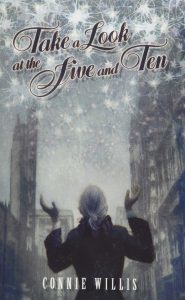 This week I read Connie Willis’s Take a Look at the Five and Ten, and it was so good, I forgot about the snow for an hour.
This week I read Connie Willis’s Take a Look at the Five and Ten, and it was so good, I forgot about the snow for an hour.
Also The Flatshare by Beth O’Leary is good romance.
What did you read this week?

February 3, 2021
Working Wednesday, February 3, 2021, UPDATED (with chocolate complications) UPDATED with Amazon photo
This week I’m shoveling snow.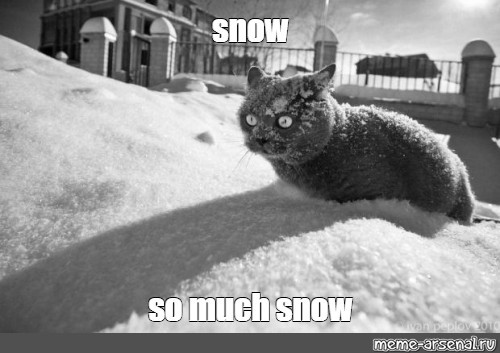
What have you been up to?
Oh, I also googled a lot of snow memes.
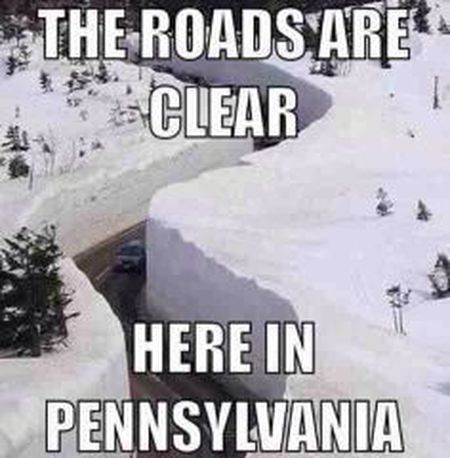
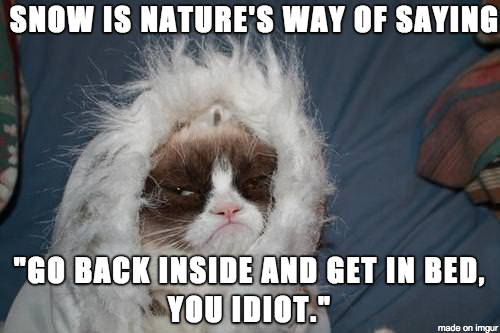

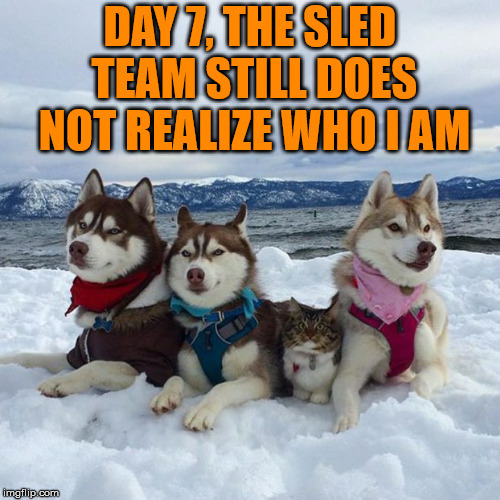
Yes, I am a little squirrelish. First it was ten months of lockdown, and now I can’t even get to chocolate with a mask.
Update:
On Monday, I ordered chocolates from Amazon. Delivery date: Saturday. Argh.
Today, Amazon delivered my chocolates. On the hood of my car. Which is out by the road.
Reminds me of that scene in You Kill Me, where Ben Kingsley plays an alcoholic hitman shoveling snow in upstate NY. He takes a swig from his bottle, throws it forward into the snow, shovels to the bottle, takes another swig, lather, rinse repeat. (I love that movie.)
So today I will not just be shoveling snow, I’ll be shoveling toward the chocolate. And a towel rod and some pet-safe ice melt, but let’s be real, I’m shoveling for chocolate.
Here’s the photo the Amazon guy took:

Every time I see it, I laugh out loud.
Also, really good movie no matter what Roger Ebert said:

February 2, 2021
Mona Is Not Amused
I think we got more than twenty inches.

You see that picket fence there in back? Those pickets are four feet tall, so I’m thinking it was closer to two feet. Also there’s a car under that big lump of snow.

I’m not amused, either. I’ve decided tomorrow is a good day to start digging out. Maybe. Today I have to start working on Lee’s February Instagram thingy (I thought hard about it yesterday, really I did) and completely rework Nita Act Two because of Insights I have had and (sigh) probably start digging out a little. Some poor Amazon guy is supposed to deliver packages tomorrow.
Snow is beautiful until you have to live in it.

January 31, 2021
Happiness is Pie
Something that always makes me happy is Karin Pfeiff Boschek’s instagram account because
1. It’s pie
2. It’s the most gorgeous, creative, inspiring, warm, and cheering art on the net done with lard and flour.
3. It’s pie.

And I don’t even like pie (exceptions: pumpkin and chocolate).
What made you happy this week?

January 30, 2021
HWSWAnswers: Revision, Cliches and Tropes
Cate asked:
Any tips for revising? Right now I read it and fix the parts I don’t like, then my beta reader reads it and I fix the parts that she doesn’t like. Which works good for putting out a finished product that is lacking in bad parts, but seems a little lacking for putting out a finished product that is rich in good parts.
Bob:
I trust my antenna for revising. If something bothers me, like the 707 above, it’s wrong. Needs to be fixed. I print out every 25,000 words or so and get the red pen out because it looks different on paper. With this new mss I’m going to print out a good draft, then randomly pick individual pages and line edit those without focusing on story until I do them all.
Jenny:
First figure out what the main plot of the book is. If your discovery drafts are like mine, they’re all over the place. Nita had a romance plot and a supernatural mystery plot and one of those had to be the main plot making the other a subplot in service to the main plot. It’s a romance, so I could cut a lot of the mystery stuff that couldn’t be connected to the romance.
Then sort everything into acts and find the turning points and make sure the turning points come from the main plot. Then makes sure the turning points turn all the subplots and character arcs, too. That’s hugely helpful for focus. Quick and dirty analysis: Boil every act down to a one sentence description of the main plot in that section, then put them together to see if they make a four-sentence summary of the plot. Do the same for subplots and then go back and look at those things in the story to see if you can focus those elements even more.
Then look at your important characters’ arcs and make sure they’re all active throughout the acts. It’s very easy to drop a supporting character you’re going to need later, but even if that character’s arc is minor, you need it in every act for that sense of continuity and so that the reader doesn’t forget the character and wonder who the hell they are when they show up again. You can also do the four-sentence exercise to make sure your arcs are smooth.Read the story on the screen, read the story on paper, read the story out loud. Then send to the beta readers. Look at what your betas tripped over, not at the solutions they propose (you’re writing this, they’re reading it, all that matters is what threw them out of the story as readers).There’s a lot more, but that should help get out of the piecemeal rewrite problem. Look at the shape of the big picture (collage really helps me here).
Bob:
Everyone has to find their own process. Try different things.
Jenny:
Could you be more specific? I know you rewrite these days.
Bob:
I start over several times in the course of a mss. Especially if I have a moment of enlightenment that something needs to change. So I’ve always rewritten. I’d say by the time I get done with the “first” draft, I’ve rewritten most of it five or six times.
That’s in addition to the print outs every 25k or so.
Jenny:
which brings us to Mary’s question:
Mary M asked:
How often do you and Bob print out your works in progress to review? Do you notice things on the printed pages that you don’t notice reading on your computers?
Jenny:
I usually don’t do a print out until I’m on the final-final draft or thereabouts. It’s such a waste of paper otherwise.
And the differences are HUGE. I always find a ton of stuff on the paper draft.
Another way to find things you’ve missed: Read it out loud. (Again, not until you’re in final-final range.).
Seeing it on paper is completely different from seeing it on screen; hearing it is completely different from seeing it.
Bob:
Around every 25k. Also I convert the mss to mobi, or the new epub, for Amazon and read it on my kindle. Looks different like that. And self-publishing, always have to read on Kindle before hitting publish.
Jenny:
Oh, that’s an excellent idea.
Cate asked:
Jenny has said that plot is not the part of writing that comes naturally for her. Any tips for a non-natural plotter trying to learn how to plot mysteries? (Why can’t a book be 100% great banter?)
Jenny:
The four-act structure with turning points is the only thing that saves me. Pairing four acts of main plot structure with four acts of subplot structure and four acts of character arc is what gets me through, along with clear goals and arced sub-goals. But I can’t do that until I have most of a discovery draft done. Also doing a genre read helps with plot: I was all over the place with Nita until I reminded myself that it was a romance and therefore every scene had to attach to the romance in some way. That’s a huge help for focus.
Bob:
Plot is not a problem for me. I’ve never run into a plot I can’t fix. I trust my subconscious more. If I put something there, even if it doesn’t make sense, I leave it. Because it will make sense later. That works both ways though. By putting it there, my brain remembers it and then later on I start connecting the dots and looping. I think looping is a key thing to understand. That means everything you write is important so there are no throwaways. I did cut something from Shane yesterday, but it was because my reason for putting it in was stupid: I had the royal couple fly in on a purple 707— why? Because there is a purple 707 lots of rock bands, including Led Zeppelin used. Cute right? Does it add to the plot? Now that I’m near the end: Nope. It’s a distraction. And the big thing is the 707 doesn’t fly any more so I had someone explaining why this one was still flying and did it have anything to do with the story? Nope. Cut it. Only two paragraphs, but it was a distraction. Kill your darlings.
Jenny:
Last question:
CologneGirl asked:
So if you’re still looking for questions, here’s mine. I’m sure you’ve been talking about clichés before, probably sending them to writer’s hell. But what I observe is that a lot of readers seem to like them since the bestselling books very often have them. Maybe we could talk about them a little more – how to evade them, how to put them to good use, and what is the main difference between clichés and tropes? (Forgive me if I ought to know that by now.)
Bob:
Mega-bestselling authors can sell their laundry list. Well, maybe not, but often I find some writers get to a point where their books blur together and are full of cliches.
Twisting a cliché is fun. For the climactic scene of Shane I’m going to pit two people against each other that are totally different.
When I read a book or watch a show and I can predict everything that’s going to happen? That’s all cliches. I like it when I get the unexpected.
Jenny:
Let’s start with the differences which are, uh, fuzzy.
A trope is a plot, phrase, metaphor, whatever that has been used so often it has become a literary genre or standby. The marriage of convenience plot, “it’s better to have loved and lost” phrase, fire as a metaphor for passion, etc. A trope is usually literary although I see no reason not to define in terms of storytelling in general.
A cliché is a trope that has been used so often it’s basically worthless, worn out, devoid of any deep meaning. It’s that t-shirt you love that you should have thrown out five years ago. “Cliché” is also a kind of insult which “trope” isn’t.
Having said that, the word “trope” is so general that I’m not sure how much good it is in actual analysis. I think you have to give examples so people know which subset of tropes you’re talking about. “I find the trope of the marriage of convenience is overused to the point of cliché.” “I think the Fake Date trope is just a modern variation of the marriage of convenience.” “I’m really tired of the trope of the character who’s been hurt so much in the past that she/he/they can never love again.” “I really hate the trope of the one-night stand who finds out the next morning that that person is the new boss.” So to answer your question:
Readers like tropes because that particular trope is the kind of story they like, it fits their fantasies best.
But readers don’t like tropes because they know what’s going to happen, so they’re boring and predictable.
What readers want are the same old tropes made new, new wine in old bottles. The same but different.
The mistake writers make is writing the same, but not different.
I always go back to Shakespeare for this because he stole most of his plots, but he’s still a genius because nobody wrote them as well as he did. So assuming you don’t write as well as Shakespeare (me neither), the things you do to make tropes new are your author’s voice, the world view of the story, turning a key part of the plot upside down, fabulous characters the reader wants to spend time with, great worldbuilding . . . the list is endless. Anything that makes the reader say, “I love this kind of story but I haven’t read anything like this before.”
So the Chosen One story is a trope, but Harry Potter when he hit the scene was a new take, well-written. Same with Neo in The Matrix.
The Sinner Trying To Outrun Hell is a trope, but The Good Place zigged and zagged with a compelling protagonist and cast of misfits.
The Superhero trope has been around forever, but Iron Man made them snarky, fun, sexy, and rebellious and started a movie dynasty for viewers who’d never read a comic book.
Generally speaking, you can look at any story that caused a stir, that became water cooler talk, and it’s probably a trope that’s the same but different.
Example from my writing:
In a late rewrite, I realized I’d subconsciously taken the very old trope of the Demon Lover for the Nita book. It’s usually about a woman who takes the Devil as a lover, but when he leaves her, she marries someone else so that when he comes back to find her years later, he punishes her for her unfaithfulness in a horrible supernatural way (I think the first one was drowning her in the middle of the ocean to take her to Hell). Needless to say, the Demon Lover is not a romantic comedy trope, so I had to work the “same but different” approach: Nita falls in love with Nick, who’s going to be the Devil, but at the halfway point, he “goes away” because he loses his memory, and keeps coming back to her as a new Nick, becoming a new lover each time, annoyed because she slept with the other Nicks while she tries to convince him that they were all him. And she does go to Hell in the end, but it’s a romantic comedy so she comes back to Earth with him and lives happily ever after.
Same: Devil as lover, abandoned, tormented by his jealousy when he returns, ends up in Hell.
Different: Doesn’t betray him, chooses to go to Hell, returns triumphant with a happy ending.
Also change in the writer’s voice:The Daemon Lover ballad, 1648
“O what a black, dark hill is yon,
“That looks so dark to me?”
“O it is the hill of hell,” he said,
“Where you and I shall be.”
The Devil in Nita Dodd, god knows when it will published:
“It was dark, pitch black, and even though Nita knew she was screaming, she couldn’t hear anything.
“You’re okay, Nick’s voice said in her head. You’re safe, I’ve got you. Nothing can touch you here.
“Where is HERE? Is this Hell?
“No, this is between Earth and Hell. This is a hellgate. We’re just staying here for a few more seconds, then we’ll go back to Earth.
“Nita thought about it. It was quiet. And warm. And her mother wasn’t there. And Nick was. I like here better.”
The same but different.
I know, long answer. I am a wonk.
Bob:
Interesting. Yes. Readers do have a set of expectations. If they’re reading a mystery, they expect a mystery, not something else. If you go too far out of what they expect, most of the time they go WTF? Every once in a while, someone breaks that and it works, but those are few and far between.
jenny 5:38 PM
So, the same but different. Good luck with that.
Bob Mayer 5:39 PM
Yeah. It’s like when someone tells me they’ve written a thriller mystery.
Pick your poison.
Jenny:
The problem with trying to combine two different genres and probably two different tropes is that you have to pick a lane, one has to be dominant, and you to do it while you’re subverting the genre/trope to avoid reader boredom. Yes, that’s difficult. Pick one.
Bob:
Same with a plot. You have one main plot. One thing pulling the train. Not two. I’ve found science fiction writers have so many good ideas, they lose track of what’s pulling the plot. Unless its Snowpiercer.
Jenny:
Do I want to know why Snowpiercer is the exception?
Bob:
It’s a train.
Jenny:
Right.
And that’s it. We’ll be back next week if more questions pop up in the comments.
Bob:
Same bat channel. Same bat time. Is that how it went?
Jenny:
I don’t know. I don’t remember that.
Bob:
Regardless. Batman survived. That is all.
Jenny:
I do remember the Superchicken theme song.
“Fred, if you’re afraid you’ll have to overlook it,
Besides you knew the job was dangerous when you took it”
http://www.lyricsondemand.com/tvtheme...
I use that all the time.
“Overlook the fear,” I tell myself. “You knew the writing gig was dangerous when you took it.”
There’s much to be learned from the television of the last century.
And now, really, we’re done. Say hi to Gus and Scout for me.
Bob:
Stay safe!
Jenny: You, too.
(Note: First part of this Slack chat is in previous post.)

January 29, 2021
HWSWAnswers: Collaboration, Organizing, Writing the Military
Allanah asked:
HWSWA Question (on the subject of tact): I love how seamless your co-written books are, especially given your different writing methods and also typically different subject matter. I wondered, have you read each other’s independent books, and if so, which are your favourites and why? I think maybe this is a question about how your writing works together, when on the surface it might seem unlikely?
Jenny:
Favorite books of Bob’s: I still love Bodyguard of Lies and there’s an earlier one, Cut-Out, that’s great (we need to talk about that ending, though). And now I need to check out the Will Kane books.
Bob:
I read several of Jenny’s books, started with Bet Me, but mainly I followed her lead on Don’t Look Down. She wrote the first scene and I tried to mirror the voice. The big thing is that we split the writing with her taking female POV and I took male POV.
Jenny:
Bob asked me to collaborate in 2004 when we’d both had too many drinks with umbrellas in Maui.
The story of how we agreed to collaborate is here (very old blog post):
There’s also a bit about meeting Bob in Maui in this blog post from 2006:
Why it’s seamless (thank you): Bob writes the male PoV and I write the female, and then we rewrite together. Since we’re both all about the best book possible, and we both have surprisingly little ego about who gets more page space or any other power struggles (Bob may beg to differ there), and since we both agreed that the person who owned the character got to revise that character’s dialogue no matter who had written the scene, and since we realized early on that Bob would be writing the violence and I’d be writing the Yucky Emotional Crap (YEC, Bob’s description of the romance), we had very few disagreements. About the book. We fought like rabid minks about everything else but the actual book stuff was pretty easy.
Bob:
Oh yeah. Forgot about YEC.
Jenny:
The splitting of the voices by gender was key.
I think that was a huge part of the success of the collaboration.
Bob:
Remember, we were younger and naive back then. Now we are older and wiser and tough as rocks.
Jenny:
We had NO idea of what we were getting into.
Moira asked:
I’ve been trying to think of a question for He Said She Said, because I love the conversations, and I guess I still wonder how the two of you ever managed to write your first book. Jenny does Discovery Drafts, and at that time, it sounded like Bob preferred to plan and outline first. How did you ever get that first book out without driving each other nutso with your different approaches?
Bob:
I used to plan and outline, but now I’m more of a streaming one. I have a protagonist, a setting, and throw a problem in the way. I like to kind of know what the next couple of scenes are. Today I sat down and semi-outlined the next four scenes in Shane, to get me going again. I need that because I’m getting near the end and I need to start closing out subplots and complete loops. A story raises questions as it goes and it’s my job to answer them. I’ve been stuck for a little while because I was missing a piece, but I unearthed it and did some rewriting to tighten the plot down and now can move forward again. I’ll be starting No Quarter soon, although already wrote the opening scene and while walking in the woods with Scout today started thinking of the first scenes; when each major character comes on stage and have a rough idea in my head where it will start.
Jenny:
You know, I’m trying to remember. I do remember getting to the end of the first discovery draft of Don’t Look Down and getting an e-mail from Bob that said, essentially, “We’re done,” and him getting one back from me that said, “LOLOLOLOLOLOL!” Basically, we did drive each other nuts. It wasn’t too bad when we were in different states doing everything in e-mail, but when we were together . . . . As Bob once put it: “We should never be in the same zip code.” He, as usual, was right.
I think we did the basics. For Agnes, I remember saying “I want to write about a food writer” because I’m lazy and my favorite cousin Russ Parsons was food editor for the LATimes. Instant research. Then Bob said, “I want to write about a hitman.” So I asked Russ why anybody in the food writing business would want to kill another writer, and he said, “Jenny, we don’t do that.” So Bob and I brainstormed in e-mail. He wanted to set it in the South again, and I know zip about the South but I was getting tired of writing about Ohio so I said, “Sure.” Then he made me drive down there so we could “walk the terrain” and he was right about that, too. I remember standing in front of this old mansion on the intracoastal (I think) and saying to Bob, “The gazebo will go there, and the wedding party will come down those steps . . .” and Bob saying to me, “The attack will come from the water, and the sniper will be hiding in those woods . . .”
The key was that collaborating was really like improv: In the beginning you say yes to everything you possibly can, keeping your mitts off the other person’s character. If Bob wanted a hitman, he got a hitman, even though putting a hitman and food writer together wasn’t going to be easy. Which is one reason I think Agnes turned out so well: it wasn’t an obvious set-up.
Then, as I remember (Bob, do you remember?) we blocked out a plot so that we had the turning points and started to write. I remember we made a LOT of changes, the original plot was super complicated and involved somebody hiring Shane to kill Agnes. We had to work through that. But always the improv rule: you can’t say no to your collaborator. We negotiated a lot, but it was always about what made the story better. If I haven’t said this before, Bob’s a terrific collaborator.
Bob:
I think we meandered into turning points because I’d never used turning points before.
Jenny:
That’s because you’re a natural-born plotter.
Whereas I’m a natural-born banterer.
Bob:
Yeah. I never took a fiction writing course. My first novel was basically based on all the books I’d read.
Jenny:
After I sold my first book and realized I didn’t know what the hell I was doing, I took a screenwriting course from Michael Hauge. Saved my career. Thank you, Michael!
But that’s where I learned turning points.
Bob:
I highly recommend a screenwriting course. I’ve sat in on Hague’s course.
Jenny:
I actually took it twice, once to get the info and once to remember it and see it at a deeper level. Very practical course.
Bob:
It takes a while for learning to really seep in.
Jenny:
I remember I had a choice between paying my utility bills and paying for the course. Best irresponsible decision I ever made.
Bob:
You can always burn furniture for heat and light. And eat your arm for food.
Jenny:
Have you had this anti-arm fixation for long?
Bob:
Relatively new one.
Jamaica asked:
Yes! I have a question for both you and Bob. What systems do you use to keep everything organzied while you write? (I mean early stages, not after you’ve started figuring the story out.) I’m currently working on my third novel, barf draft. I have folders labeled for each character, but also one that just says “notes” where I jot down things as I think of them, kind of stream-of conciousness. I am definitely low-tech and write all my first drafts by hand. I tried to create the story on the computer and my brain doesn’t work that way. I almost gave up, but then discovered if I write long-hand my brain will spit out a story. So fancy computer programs don’t cut it for me. Any advice on how you organize the big mess of a first draft without losing your place?
Thanks to you both! Love HWSW.
Bob:
I’ve tried a couple of those writing organization programs but they don’t work for me. I do Excel spreadsheets and binders. Even linking web pages doesn’t work. I print it out and highlight. I also tend to order a bunch of books, depending on the topic. For example, I’ve got a stack of books about the underworld (literally) of New York City for Hell of a Town about the tunnels, subways, aqueducts, etc. I bought 3 books just about the Marine Raid on Makin Island in WWII, for one small subplot in Walk on the Wild Side.
The “Story Grid” is the one thing I’ve done for every book. I keep it to one page. Each row is a scene. I fill it out as I write. But I also make notes about what to loop later– what things I introduce that need to be addressed again. We all need to figure out how our brains work. Then use external tools that make up for the ways they don’t work so great. Like grammar. The biggest thing is to externalize what’s in our heads. Externalizing it makes it real.
[Here Jenny pasted the wrong response in.]
Jenny:
NO IGNORE THAT. Wrong answer.
Bob:
When I said we were tough as rocks now, I also should mention our brains are also turning to rock.
Jenny:
So true.
So to answer the question, my system is REALLY loose. I write the first discovery draft and just throw the files into a folder with the book title or protagonist’s name on it. When I’ve got more than half of a discovery draft done, I block out acts, the four (usually) sections of the story and sort those into folders called “Nita 1,” “Nita 2,” and so on. I also have folders called “Nita Notes” (tables, lists, charts, etc.), “Nita Collage” (images and composites), Nita Cuts (things I’ve lopped out in rewrites so I can find them if I need them back). And “Nita Pieces” which are random snippets I’ve written while doing other things like paying bills or reading the news or whatever that I don’t want to interrupt just because I thought of something for the book. The insides of those folders are a disorganized mess, but at least I’ve got that.
Bob:
My main rule: write it down. What’s in my head is mush. Writing makes it real.
Jenny:
I make lots of notes which I immediately lose. The worst thing that ever happened to my organization was the invention of the Post-It app for desktops.
Bob:
I love Excel spreadsheets. When I learned I could do tabs, it was a major breakthrough. Then I learned I could color code. Even better. I’m slow, but I get there eventually.
Jenny:
I still have not mastered Excel. It’s too . . . organized.
Bob:
There are like boxes, And columns. And rows. I try to keep everything on one page though, for viewing and printing purposes.
On a screen. On a thing called a computer.
Jenny:
You know you can get the same boxes with Word tables. That’s friendlier.
Bob:
Oh no. Don’t make me try something new. Never. I’ve been flying my drone for a week and thought the camera wasn’t so great until yesterday I realized I hadn’t taken the protective plastic cover off the lens.
Jenny:
I’d laugh but that is so something I’d do.
Moira asked:
Also, I want to know about the jeep accident in the deep South. That sounds interesting.
Bob:
What Jeep accident? The jeep that magically appeared in Don’t Look Down after Shane flew in?
Jenny:
No, that was the jeep fairy in Don’t Look Down. This is the one where you fell asleep and drove into a tree in Georgia. Which you told me about late one night as you were yawning and driving me through Florida.
Ask us about the tour we did in his ancient Explorer in Florida January 2006 (hot and damp) when the air conditioning wasn’t working and the heater would come on occasionally just for the hell of it. Think musty, mildewed Florida with a cranky Green Beret. I even wrote a blog post about it:
Rerun: He Wrote She Wrote: On the Road with Bob and Moot, January 20, 2006
Bob:
Oh. I fell asleep and ran off the road and rolled my Jeep in the Okefenokee Swamp. I also blew out a tire in the Rockies one time.
Jenny:
Bob Mayer: Do not go on road trips with him.
Bob:
Scout likes them.
Jenny:
Remember when you drove me through NYC and Yonkers on the way to Boston? Somewhere I have a blog post on that, too. “Watch it, lady, I’m drivin’ here!” That and your rant about Elizabeth Bishop. Good times.
Bob:
Oh yeah. The Barnes and Noble that I knew where it was but couldn’t find it.
Jenny:
Looked for it for ages and then when we found it, he said, “Oh, yeah, we used to come here all the time when I was a kid.”
Bob:
This was before GPS. Before printed maps. We were actually in a horse and buggy if I remember rightly. With Tom Hanks.
Jenny:
I don’t remember Hanks, but I remember the buggy part.
Sure Thing wrote:
What gets you stuck in? I think Bryce Courtenay called it “bum glue” – figuratively glue your bum to the chair and write. Jenny has at length lamented her, “Ooh shiny new idea” issue. But how have both of you learned to stick to an idea and see it to the end?
Jenny:
Obviously, I have no good advice on this. Bob?
Ask me how to start a book, I have ten of those.
Bob:
I finish every book I start. For the last letter of Myers-Briggs, I am a J. That means I like getting to the finish. I used to run marathons so I’m in it for the long haul. I just thought of a new nonfiction book to go along with my Survival Guide today, but I put those ideas in a folder. Right now I know I have to finish a good draft of Shane for Beta readers and then get No Quarter done by end of May.
Jenny:
Bob is Focused and Goal Oriented.
Wait a second, I’m trying to find where I am in the questions.
Bob:
Military stuff for me next
Jenny:
Thank god one of us is focused.
Cate asked:
Military stuff for Bob, because I sometimes ghostwrite military heroes:
– What are some common reasons people decide to leave the military/not reenlist?
– What are some jokes/ stereotypes that different branches of the military have about each other?
– Are there any characteristics/ perspectives/ habits that military people might hang onto after they’ve left the military?
Bob:
I left the Army because they were promoting me out of the jobs I liked. I enjoyed being with the troops, on the ground. After leading three different platoons and commanding an A-Team, the next step in Special Forces for me was a B-Team leader—commanding 6 A-Teams. But since SF operates at the A-Team level, you’re basically a logistics person and intermediary..
I’m not sure about the jokes any more. I used to say Seals brains turned to mush at the high water mark. Marines are always fun to joke about, as long as there isn’t a Marine around. The Air Force is considered the cushy service. The joke is when they start a new base, they put the golf course and O’Club in first, and then ask for more funds for the airstrip.
Habits: being on time is a big one for me, especially given West Point ran like a clock compared to the real Army. For people in Special Ops, we tend to be a bit paranoid.
Jenny:
I was an Air Force wife once. I learned nothing about military, but I can testify to Bob’s paranoia.
Tune in tomorrow for the rest of this week’s questions. Or not. Up to you.

January 28, 2021
This is a Good Book Thursday, January 28, 2021
I’ve got a trio of non-fiction books on writing in my TBR list, two old and one new, and now that I think of it, there were two other books on horror fiction I wanted to read, so I’ve got those. And a great site, the Historical Dictionary of Science Fiction, which is a less-addictive TV Tropes, assuming you like dictionaries, which I do.
What did you read this week?




